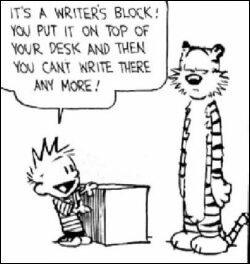Stephen’s College Essay Breakthrough: Write Honestly
October 15, 2013 :: Admissionado Team
 I stared at my words on the screen, yet each one was a lie. For my early action application to Harvard, I was attempting to answer the supplemental essay question: “Is there anything else you’d like us to know about you?” I desperately tried to write something calm, something levelheaded, something that would show what a together guy I was—even though I had just been through two of the worst months of my life.
I stared at my words on the screen, yet each one was a lie. For my early action application to Harvard, I was attempting to answer the supplemental essay question: “Is there anything else you’d like us to know about you?” I desperately tried to write something calm, something levelheaded, something that would show what a together guy I was—even though I had just been through two of the worst months of my life.
It was the fall of my senior year. In the second week of school, I organized a “Spirit Week” as president of the Student Government Association. Tuesday was Hat Day. The only problem was that the Senior Class Committee had scheduled our class picture for the same day. It was a major oversight on my part, and I watched as students groaned, posing for the group photo with terrible hat hair. But all of that would soon be forgotten. The date was September 11th, 2001.
I returned to my English class at 9 a.m. One of my friends announced that “a plane flew into the World Trade Center, and there’s a big fire.” Our teacher turned on the television, where the image showed black smoke billowing from Tower One. I struggled to catch my breath. My dad worked two days a week on the 72nd floor of Tower One. “It’s probably nothing,” a friend reassured me, “just a small plane that went off course.” The teacher urged us to stay calm, and she shut off the television. An hour and a half later when class was over, she turned on the TV again. Both towers were gone.
The next few hours were full of unbearable uncertainty, with no way to contact my dad. Around 1 p.m., I was walking out of the lunchroom, riddled with anxiety, when I suddenly saw him walking down the hallway towards me. I hugged him with tears in my eyes as he told me what happened. His meeting at the World Trade Center had been cancelled, and he was in the car en route to his office just west of Manhattan when both planes struck. My dad told me how the traffic on the highway stopped and he got out of the car, watching in horror as Tower Two fell.
For the next few weeks, the events of that day replayed in my mind. I would stare up at the sky, fearful at the sight of an airplane. I had trouble sleeping, and out of nowhere panic would overtake me, causing my heart to race and my body to tremble. I knew that I was incredibly lucky to still have my dad, but I kept thinking about what would have happened if his meeting hadn’t been cancelled.
Nearly a month later on October 7th, I had dinner with extended family at my aunt’s house. I remember the look on my grandmother’s face as she watched the latest report from Ground Zero. Nonny, as we called her, knew how close I was with my father and also that I was a perpetual worrier. She glanced up at me, saying, “I don’t want any of this to disrupt your plans for the future. You must be strong, not scared.” Nonny was a quiet woman, a Holocaust survivor who had once danced in the ballets of Vienna. When she spoke, she chose her words carefully, and it was a good idea to listen. I knew what she was referring to; I had said a few days before that I might put off applying early to Harvard, since I couldn’t focus on the application. My troubles were destined to deepen still.
Two days later, Nonny was gone. It came out of nowhere—she had never been sick—and I can remember the anguished cries of my mother when she received the phone call that Tuesday morning. Nonny passed away in her sleep, the result of a pulmonary embolism, a blood clot that traveled from her leg into an artery in her lung.
Two weeks later, after the funeral and traditional Jewish mourning period known as shiva, I sat in front of my computer, unable to complete my application to Harvard. It was due in a matter of days. Yet, the words in my supplemental essay rang false, and they betrayed the powerful emotions that surged deeply within me. I was writing a sanitized version of myself: a guy who works hard in school, enjoys creativity, and handles all of life’s problems with ease. That’s when I remembered my grandmother’s words: “You must be strong, not scared.” Her advice resonated strongly, especially in the wake of her passing. The application process was something I was building towards for the last three and a half years, and Nonny more than anyone else did not want my hard work to go to waste. If I betrayed my true self in my writing, I realized I’d be doing just that.
That’s when I had my breakthrough moment: write honestly. Write from a place of emotional truth, and don’t hide your feelings. I quickly opened a blank document, and the words surged forth, emerging as fast as I could type. I wrote about the past few weeks—much like I’ve just done here—explaining what my family and I had been through. I wasn’t writing to garner sympathy. On the contrary, I was telling the story because I came to the realization that this was a defining moment in my life. In the wake of two tragedies, I felt like I was suddenly forced to grow up. In my writing, I didn’t spare any emotional details, and I wasn’t afraid of being judged negatively by the admissions committee. For better or worse, I was giving them an honest view of who I really was.
Looking back almost 12 years later, I’m certain that essay was a crucial piece of my application. It was also cathartic to write. It helped me deal with an extremely difficult situation; there’s nothing quite like putting the proverbial pen to paper and committing your thoughts to words. I learned to be strong and not scared, overcoming my fear of being judged by sharing honest emotion. Ultimately, that’s the only way to connect with your reader, to give them a sincere view of the real you.
By Stephen Black, Admissionado Senior Consultant



